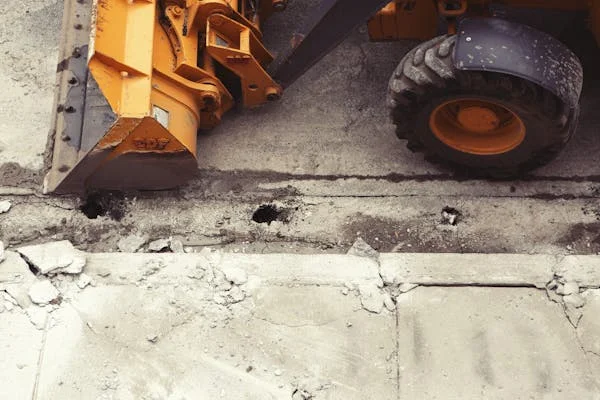Introduction
Mining Cabins Not Patented But Pay Taxes in Nevada Qui is known for its rich mining history and its vast public lands. Miners often establish cabins on these lands to provide shelter and support for their mining activities. However, navigating the complexities of property ownership and taxes on these cabins, especially when they are built on unpatented claims, can be difficult. This article explores the taxation of mining cabins in Nevada, focusing on the taxation of cabins on unpatented mining claims.
What Are Mining Cabins on Unpatented Claims?
Understanding Unpatented Mining Claims
Unpatented mining claims refer to mineral rights staked on federal land, granting miners the right to explore and extract minerals, but not the right to own the land itself. Miners can build cabins to support their operations, but these cabins are considered “improvements” rather than part of the land.
Key Features of Mining Cabins on Unpatented Claims
- Cabins as Structures: These cabins are temporary or semi-permanent structures used to support mining activities.
- Federal Land Ownership: The government retains ownership of the land, but the miner has exclusive rights to extract minerals.
- Improvements Taxed: Local Nevada counties tax these improvements, including cabins.
Taxation of Mining Cabins in Nevada
In Nevada, the taxation of mining cabins depends largely on whether the land is patented or unpatented. For unpatented claims, local counties often tax the improvements—such as cabins—because these structures are seen as valuable additions to the land.
Patented vs. Unpatented Mining Claims
|
Feature |
Patented Claims |
Unpatented Claims |
|
Land Ownership |
Fully owned by the miner |
Federally owned |
|
Right to Build |
Can build permanent structures |
Limited to improvements only |
|
Property Taxation |
Taxes on land and improvements |
Taxes only on improvements |
|
Tax Obligation |
Local property taxes |
Local property taxes on cabins |
|
Tax Rates |
Based on assessed land value |
Based on cabin’s improvement |
Why Do Unpatented Mining Claims Pay Taxes on Cabins?
Even though the land is federally owned, Nevada local governments can levy property taxes on cabins built on unpatented mining claims. This is due to the following reasons:
- Improvements Increase Value: The cabins enhance the property’s overall value, making them subject to local taxation.
- Revenue Generation: Local counties rely on property taxes as a significant source of funding for public services.
- Miner’s Responsibility: Miners are considered responsible for paying taxes on the improvements they make to federal land.
The Process of Taxing Mining Cabins on Unpatented Claims
The taxation process for mining cabins on unpatented claims in Nevada follows several steps:
1: Assessment of the Cabin’s Value
Local county assessors determine the value of the cabin, which is typically based on the cost to replace the structure. This valuation takes into account the cabin’s condition, the materials used, and other relevant factors.
2: Application of Tax Rates
Once the cabin’s value is assessed, the county applies a property tax rate to the value. In Nevada, the property tax rate is generally capped, which makes it more predictable for cabin owners.
3: Billing and Payment
After the assessment, the county sends a tax bill to the property owner, who must pay the tax within a specified timeframe. Failure to pay these taxes can lead to penalties or even a tax lien.
Key Considerations for Mining Cabin Owners
1. Local Property Tax Rates
Property taxes in Nevada are generally calculated as a percentage of the value of the improvements (such as a mining cabin). These taxes are assessed by the local county assessor’s office and can vary by county.
- Standard Tax Rate: The tax rate is generally about $5 per $100 of assessed value.
- Taxable Value: The taxable value of the cabin is determined by the county assessor, who typically uses the replacement cost minus depreciation.
2. Tax Exemptions and Deductions
In some cases, certain exemptions or deductions may be available for mining cabin owners, especially if the cabin is used for certain purposes like research or historical preservation.
How Are Mining Cabins Assessed for Tax Purposes?
The value of mining cabins is assessed based on the following factors:
- Replacement Cost: The cost to replace the cabin is the primary method used for determining its taxable value.
- Depreciation: Mining cabins depreciate over time. The county will adjust the cabin’s value by considering its age and condition, typically depreciating at a rate of 1.5% per year up to 50 years.
- Improvement Type: A cabin built with basic materials may be valued lower than one built with higher-end materials or amenities.
Common Challenges for Mining Cabin Owners
1. Complex Tax Regulations
Understanding local tax laws can be challenging, as Nevada counties may have different rules and rates. It’s essential for mining cabin owners to stay informed about any changes in tax policies or regulations.
2. Unclear Ownership Rights
Miners may face issues related to their rights over the improvements they make on unpatented claims. Since they do not own the land, they may struggle with determining how much control they have over their cabins in terms of taxes and ownership.
3. Property Tax Penalties
Failure to pay property taxes on time can lead to penalties or even the seizure of property. If the taxes remain unpaid for an extended period, the county may place a lien on the mining cabin.
Benefits of Paying Property Taxes on Mining Cabins
Despite the challenges, paying property taxes on mining cabins comes with benefits, including:
- Compliance with Local Laws: Paying taxes ensures that miners comply with local regulations and avoid penalties or legal issues.
- Improved Access to Public Services: The revenue generated from property taxes supports public services that miners rely on, such as road maintenance and emergency services.
- Legal Recognition of Improvements: Paying taxes ensures that the improvements on the land are legally recognized, which could help with any future transactions involving the cabin.
Understanding the Role of the County Assessor
How County Assessors Determine Property Value
County assessors play a critical role in determining the taxable value of mining cabins. They consider various factors such as the size, age, location, and construction of the cabin. Their goal is to ensure that the assessed value is fair and in line with local tax policies.
Contacting the County Assessor’s Office
If a miner has any questions about property taxes or the assessment of their mining cabin, they can contact the county assessor’s office for clarification. Many counties offer resources or assistance for those who are new to the process.
Strategies for Reducing Property Taxes on Mining Cabins
While reducing property taxes can be difficult, there are a few strategies that mining cabin owners may explore:
- Negotiate the Tax Rate: Some counties may offer a reduced tax rate for mining cabins if they are used for specific purposes (e.g., historical research).
- File for Exemptions: Certain exemptions may apply to mining cabins, especially if they are used for public or scientific purposes.
- Appeal the Tax Assessment: If a miner feels that the assessed value of their cabin is too high, they can appeal the decision to the county assessor.
Conclusion
Mining Cabins Not Patented But Pay Taxes in Nevada Qui are subject to local property taxes, which can vary by county. Although the land itself remains federally owned, counties view the cabins as valuable improvements and tax them accordingly. Miners should understand the taxation process and consult with local authorities to ensure compliance with Nevada’s property tax laws. By staying informed and managing their tax obligations carefully, mining cabin owners can avoid penalties and contribute to their local communities.
FAQs About Mining Cabins Not Patented But Pay Taxes in Nevada Qui
Do mining cabins on unpatented claims pay property taxes?
Yes, mining cabins on unpatented claims in Nevada are taxed by local counties.
How are mining cabins assessed for taxes?
Cabins are assessed based on replacement cost, with depreciation considered over time.
What is the tax rate for mining cabins?
The typical property tax rate is around $5 per $100 of assessed value, varying by county.
Can I appeal my tax assessment?
Yes, miners can appeal the property tax assessment by contacting the county assessor’s office.
Are there exemptions for mining cabins?
Some exemptions may apply, especially for cabins used for research or historical purposes.
What happens if I don’t pay property taxes?
Non-payment can result in penalties, interest, or property seizure.




